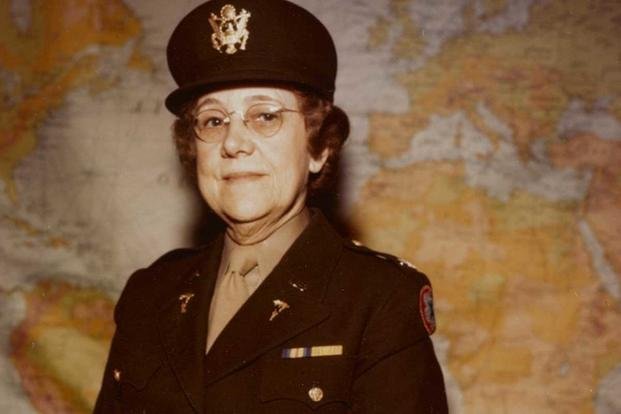Few military careers are as distinguished as Florence Blanchfield’s. Not only was she a veteran of both World Wars, she was the first woman to achieve equal officers’ rank with her male colleagues -- and she ensured every nurse that came after her did, too.
If anyone had the nursing skills and dedication to her people required for such a feat, it was Florence Blanchfield. She came from a family of nurses and was trained as one herself by age 22. From there, she studied under one of the founding professors of the Johns Hopkins University Hospital in Baltimore.
She purposely exposed herself to danger in order to broaden her education and the understanding of her profession. Leaving a good superintendent’s job at a Pittsburgh hospital, she joined the staff of a hospital in the Panama Canal Zone. She would soon leave civilian life behind and join the Army Nurse Corps (ANC) during World War I, going to Europe with the American Expeditionary Forces.
During the interwar years, she traveled with the military around the United States and to places like China and the Philippines. She even took a post at the Surgeon General’s office.
Blanchfield oversaw all of the Army’s nurses as Superintendent of the ANC during World War II. She prepared the ANC for the build-up, the fighting and the eventual shift back to civilian life. During her tenure, the number of nurses serving the Army went from a few dozen to more than 50,000.
Although her rank and responsibility was that of a full-bird Colonel, she did not have a commission in the regular Army. It was her mission to get this full rank for the women serving in the service. They were granted the rank temporarily in 1944, and Col. Blanchfield used the rank to tour battlefields and track the needs and effectiveness of her nurses. Her dedication earned her the Distinguished Service Medal from the Army.
She wanted the commission to be permanent.
Blanchfield would be the first woman to have such a commission after she helped ensure the passage of the 1947 Army-Navy Nurses Act. Working with Congresswoman Frances Payne Bolton (who had helped secure the temporary rank), she and Bolton persisted and eventually won the passage of the act.
She retired from the ANC that same year, comfortably assured her nurses would enjoy the full rank she worked so hard to earn. By the time she died in 1971, the U.S. military would boast 43,000 women in uniform. By then, the thousands of female nurses (7,500 of which served in Vietnam) were commissioned officers. Blanchfield Army Medical Center on Fort Campbell, Kentucky is named in her honor.
-- Blake Stilwell can be reached at blake.stilwell@military.com. He can also be found on Twitter @blakestilwell or on Facebook.
Want to Learn More About Military Life?
Whether you're thinking of joining the military, looking for post-military careers or keeping up with military life and benefits, Military.com has you covered. Subscribe to Military.com to have military news, updates and resources delivered directly to your inbox.










